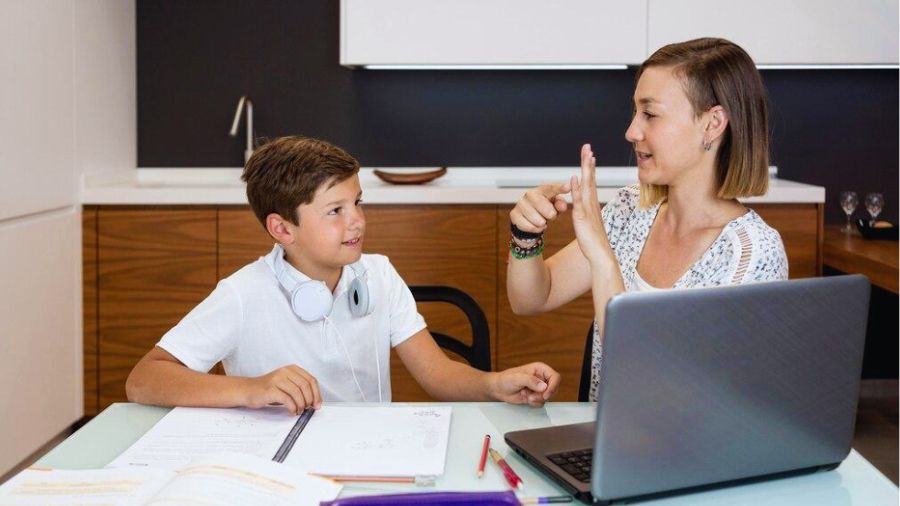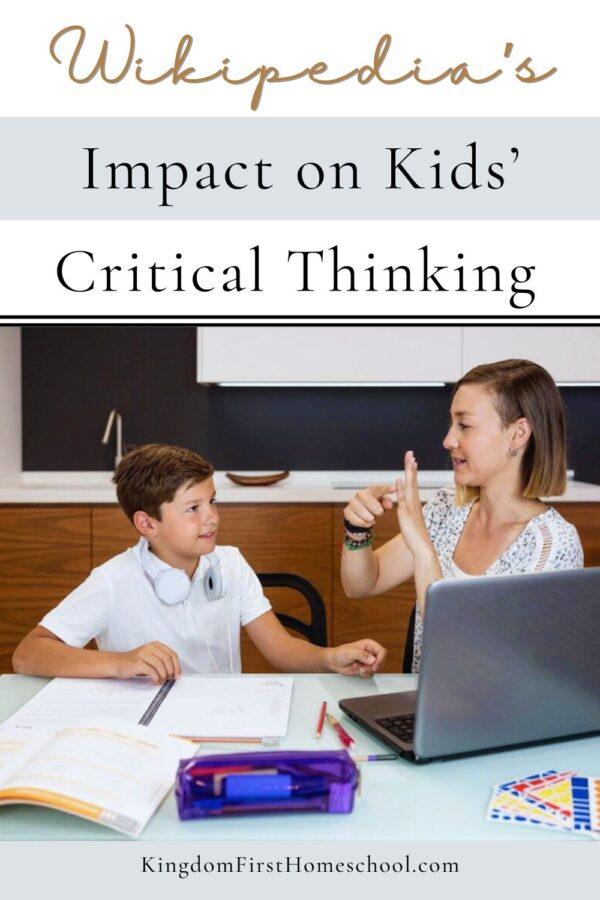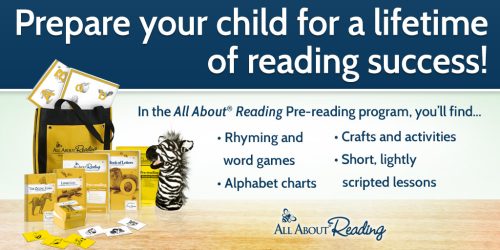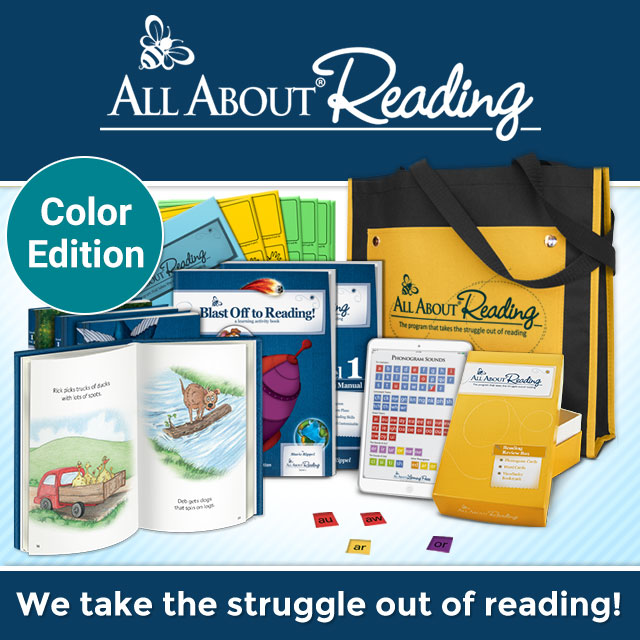Wikipedia is by far the world’s largest online encyclopedia, currently having more than 6 million articles, growing at a rate of 545 new articles daily. With so much information, it is the common point for learning and fact-checking for the average Joe. But is it also a great resource for students, especially when it comes to Wikipedia’s impact on kids’ critical thinking and analytical skills?

Although Wikipedia has heaps of information at your disposal, most students would know that it’s not the go-to website when academics are involved. Why is that? Well, most would refer to the fact that their teacher had prohibited them from using it. Or maybe because anyone can hire Wikipedia writers to write about them on the public website.
Well, those points are true, but we want to tell you that Wikipedia is more than just a fact checker for debates and trivia, and through proper use, it’s a powerful tool to improve your child’s critical thinking and analytical skills. Why is that? Well, that’s what this blog is here for.
Below, I will share why Wikipedia stands above other information sources. We’ll also explore how Wikipedia is a great tool for developing analytical skills for kids. So, whether you’re helping your kid out with their first research project or trying to improve their logical reasoning, this will unlock your kid’s reasoning skills.
Contents
- 1 Why is Wikipedia a Good Source of Information?
- 2 What Wikipedia Experts Say About Wikipedia Developing Analytical Skills:
- 3 FAQs about Wikipedia
- 3.1 1. Is Wikipedia a Reliable Source for Developing Critical Thinking Skills in Kids?
- 3.2 2. How Can Wikipedia Enhance Analytical Skills in Children?
- 3.3 3. Are There Age-Appropriate Ways to Introduce Wikipedia to Younger Children?
- 3.4 4. Are There Potential Risks Associated with Kids Using Wikipedia for Research?
Why is Wikipedia a Good Source of Information?
As I stated earlier, no online resource comes close to Wikipedia as an online information resource. Why is that? Here are some facts to support this claim:
1. Has References from Secondary Sources:
Although Wikipedia doesn’t discriminate among its contributors, as anyone and everyone is free to add information to the website, it has strict guidelines and policies to follow. Wikipedia requires contributors to follow these guidelines when adding, editing, or revising. The site takes these guidelines and policies seriously, as any violation could end with page deletion or account suspension.
These guidelines are placed to ensure the content is factual and bias-free. For this, one of its content policies requires that any information added come from a secondary published source. As information comes from multiple sources, it boosts the credibility of information.
2. Doesn’t Show Bias:
A Wikipedia page proves authenticity, so people often hire Wikipedia writers to write or edit their pages. However, another great thing about Wikipedia is that it only aims to offer information. Marketing and self-promotion are a big “No” on the site, and anyone caught doing it is met with strict action. The site only allows pages on notable topics and keeps its information neutral by prohibiting bias. Wikipedia is a bias-free source, perfect for students looking for pure information.
3. Has Up-to-Date Information:
Apart from Wikipedia, ChatGPT is another website condemned by academic institutes. The AI tool has taken the world by storm. Especially students for research and writing essays. But, although it may look useful, it doesn’t beat Wikipedia in keeping information up-to-date. Although ChatGPT can generate answers on anything, it uses old data dating back to Nov 2021. We know the world has changed a lot in these few years, and newer information has replaced the old one. Wikipedia has an active community, referred to as Wikipedians, that works daily to edit, update, and add new information to the site. This way, the site always has fresh information compared to the AI tool.
What Wikipedia Experts Say About Wikipedia Developing Analytical Skills:
Wikipedia isn’t just an information source. But it’s also a great way to develop a student’s analytical skills. We’re not just talking about high-school students; elementary-grade kids can also use Wikipedia to improve their reasoning skills. Here’s how Wikipedia can help develop your kid’s analytical skills:
1. Work Smarter, Not Harder:
Students who are given a topic will use Google as their primary research tool. The search engine giant can generate a list of millions of results from across the web in a mere fraction of a second. But although it does generate a list of search results on the topic, you’re still stuck with the hassle of looking at each search result independently to find credible information.
But with Wikipedia, that isn’t the case. The online encyclopedia contains information on practically anything notable. If you were to search Wikipedia on the same topic, you’d be met with several search results, with even a page dedicated to it. If you were to open the page, you’d find a lot of information backed with credible references. You can use the information and references for more thorough research. So, Wikipedia is a great way to work smarter, not harder.
2. Hunt Down References:
Besides improving your reasoning skills, kids can also improve their research skills through the information website. If you were to scroll down to the end of any Wikipedia page, you’d be met with several references at the end. They can use these references to dig deeper into the topic.
3. Helps Decision Making
As they dig deeper into the references on the Wikipedia page. Through it, they’ll be met with more and more information. With so much information, kids need to use reasoning and decision-making skills to decide which information they should use and which to omit. Through this way, they’ll be sure to enhance their decision-making skills.
FAQs about Wikipedia
1. Is Wikipedia a Reliable Source for Developing Critical Thinking Skills in Kids?
Yes, Wikipedia can be a great tool for developing critical thinking skills. As the site offers a lot of information, kids must think critically to decide which information to use and which to omit.
2. How Can Wikipedia Enhance Analytical Skills in Children?
Wikipedia has a wide variety of notable topics backed with references. Through it, they can analyze information, evaluate useful sources, and differentiate between credible and unreliable sources.
3. Are There Age-Appropriate Ways to Introduce Wikipedia to Younger Children?
Yes! Wikipedia has a simpler version called Simple Wikipedia, with topics written in simple and easy-to-read English. Besides that, it has all the features of Wikipedia. Kids can learn to browse as well as navigate through age-appropriate content.
4. Are There Potential Risks Associated with Kids Using Wikipedia for Research?
Yes! Although Wikipedia has a wide information source, it also leads to the risk of misinformation. You need to educate kids about misinformation and recognize credible from unreliable content.
Wikipedia is a great source of information. It has everything from credible and factual information to bias-free content, all possible through strict guidelines and policies. Even hired Wikipedia writers have to abide by these policies when writing content on the website for their clients. But people don’t know that Wikipedia is also a great academic resource that can improve their analytical skills if used correctly. If you wish to develop your kid’s analytical skills, use the above tips. You can improve your kid’s research, reasoning, and decision-making skills with them.

For more homeschooling inspiration, tips and encouragement, make sure to follow KFH on Facebook, Pinterest, Instagram and Twitter, and subscribe to our Newsletter for some FREE GOODIES!
Forest Rose is a God Loving, Blessed Wife, & Mama to 3 girls. She’s passionate about lifting moms out of the trenches that are discouraged, overwhelmed, or feeling alone or isolated. Her hope is to point them to Christ and equip them to rise up with a newfound hope and joy within, that He alone can provide. Besides blogging, she also loves to create printables!




Leave a Reply